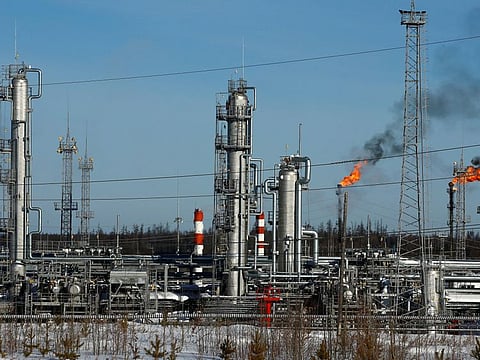Oil recovers after hitting five-month low amid rate hikes, recession risk
Tight global supply offers price support after OPEC+ agrees to raise output

London | New York: Global oil prices recovered Friday to $94.66 per barrel for Brent crude, up by 0.54%, after a drop to their lowest levels Thursday since before Russia's February military action in Ukraine, as traders fretted over the possibility of an economic recession later this year that could crush energy demand.
Brent fell to $93.60 per barrel at 4.35pm GMT Thursday, the lowest close in more than five months as traders tracked signs that physical crude markets have become less tight in recent weeks.
The West Texas Intermediate also gained slightly to $89.13 a barrel Friday (August 5), up by 0.67%, after losing almost 5 per cent on Monday on signs a global slowdown will hurt energy demand.
Production boost
Crude has opened August on a weak footing after declining for the prior two months on concerns that a global slowdown will eat into energy demand. The drop has eroded almost all of the gains seen since Moscow’s attack on Ukraine in late February, even as Washington and the EU imposed a raft of sanctions on Russian energy exports.
On Wednesday (August 3), the Organisation of the Petroleum Exporting Countries and other major oil producers decided to boost production in September at a pace much slower than in previous months at a time of high petrol prices and unstable energy supplies.
The OPEC+ alliance, led by Saudi Arabia and Russia, said it would increase output to 100,000 barrels a day next month — after raising it by 648,000 barrels daily in July and August. The group considered what effects staggering inflation and rising COVID-19 rates may have on global demand for fuel in the fall.
Pricing in growth risks
“The narrative for oil prices continue to revolve around market pricing for growth risks,” said Yeap Jun Rong, market strategist at IG Asia Pte ltd. There are expectations of moderating demand, which could translate to a narrowing backwardation, he said, referring to the pattern where near-term prices command a premium to longer-dated ones.
Brent crude’s prompt spread - the difference between its nearest two contracts - has narrowed considerably this month after economic concerns deepened, OPEC producer Libya restarted supplies, and signs emerged of weaker US gasoline demand. The differential was $1.99 a barrel on Tuesday, down from near $4 about a month ago.
Sign up for the Daily Briefing
Get the latest news and updates straight to your inbox






